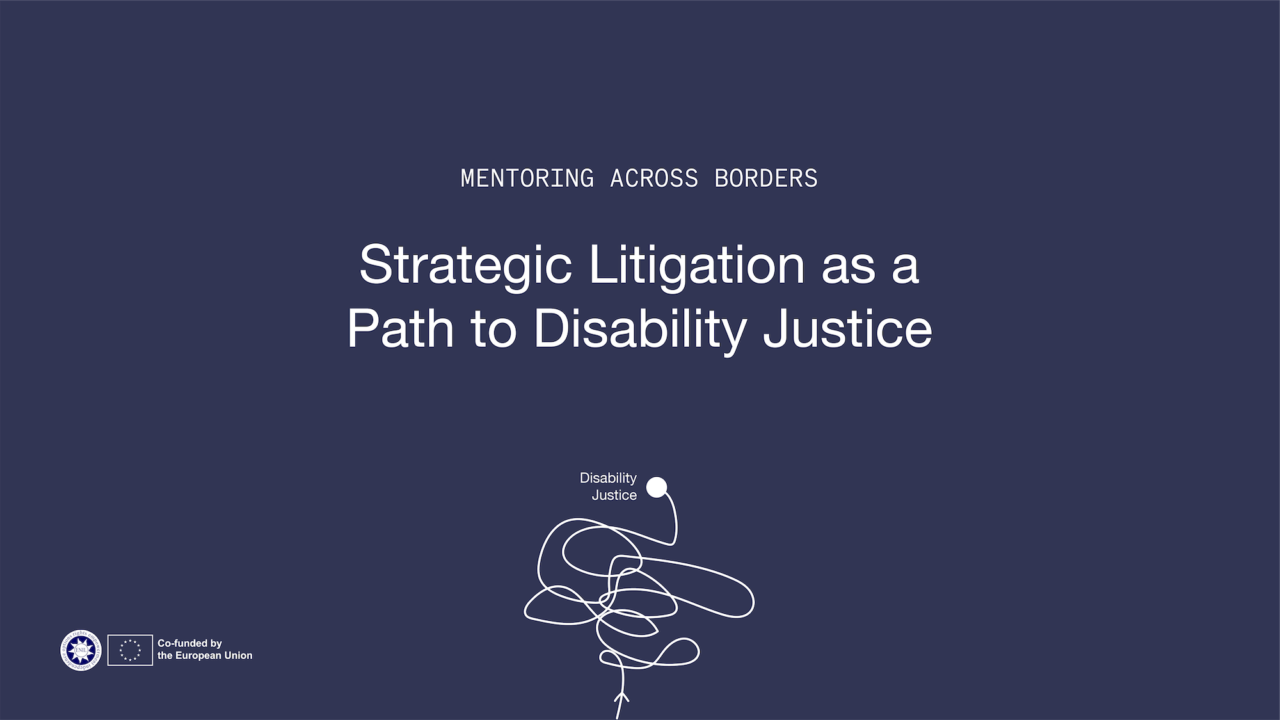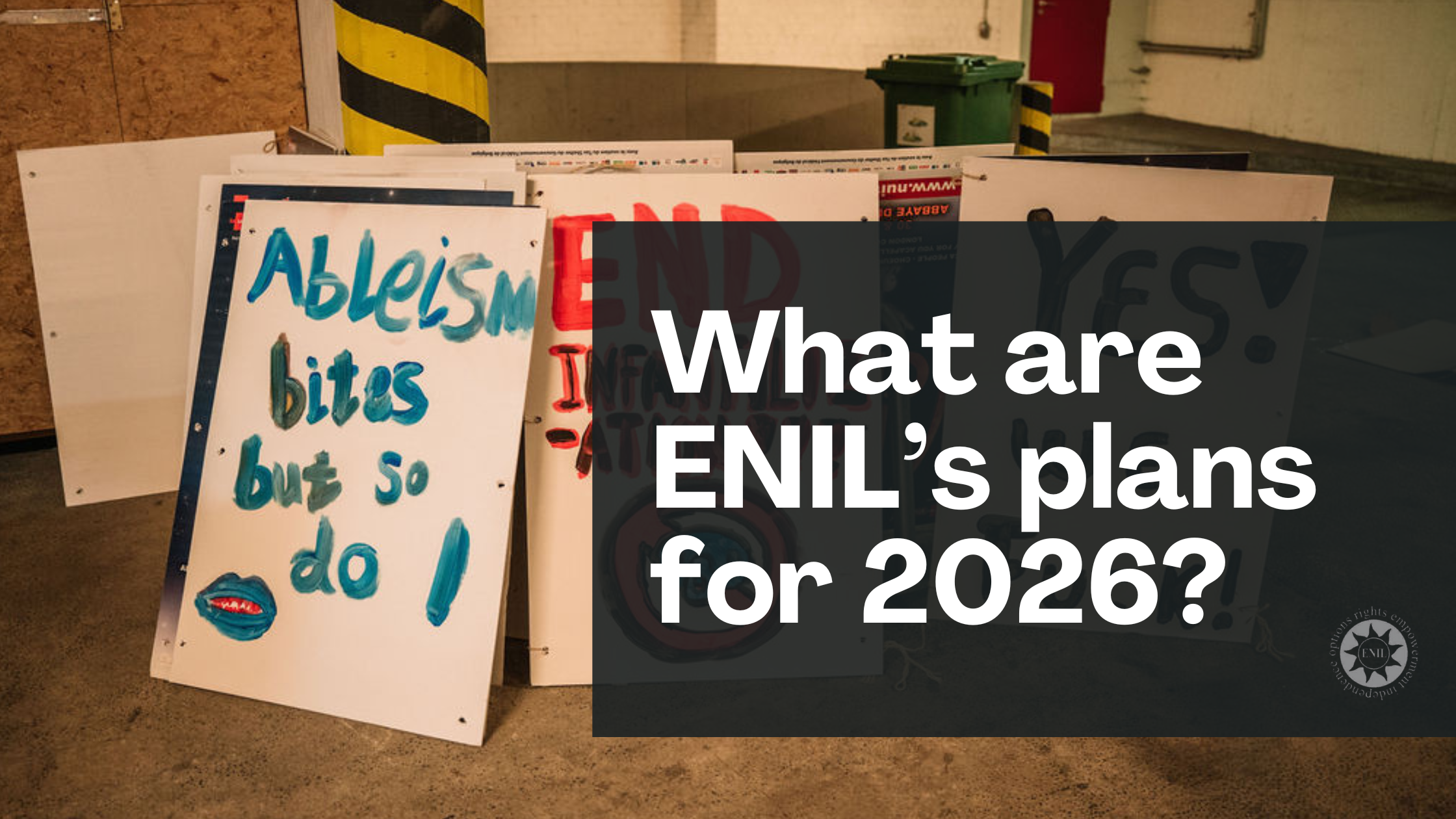By Adela Santos Lavigne – ENIL, Project Coordinator for the LITI-GATE project
In May 2025, ENIL hosted two online mentoring sessions focused on building capacity in the field of disability rights and strategic litigation. Organised in collaboration with Validity Foundation and Victim Support Europe, and co-funded by the European Commission under the LITI-GATE project, these sessions gathered over 20 participants from across Europe and Southeast Asia.
Participants included human rights lawyers, legal advocates, academics, and professionals working in or alongside Organisations of Persons with Disabilities (OPDs). Some brought direct lived experience of disability; others contributed their legal expertise and commitment to inclusive justice.
A Learning Space Rooted in Practice and Peer Support
Strategic litigation can be a powerful mechanism for change—but it can also be daunting, especially when working in isolation or within systems that remain inaccessible or unresponsive to disability rights frameworks. The ENIL Mentoring Programme aimed to provide a space for critical reflection, peer exchange, and practical problem-solving.
Across the two sessions, participants explored challenges related to:
- Intersectionality and litigation priorities: How do we choose cases that reflect the complexity of disabled people’s lives?
- Access to justice and procedural accommodations: What practical steps can ensure equal participation in judicial procedures?
- Cross-border collaboration: How can we connect litigation efforts across jurisdictions to generate broader impact?
- The importance of documentation and proof: Participants discussed how difficult it can be to collect and present convincing evidence of systemic discrimination—especially in contexts where disability rights are poorly recognised. Strategies included recording calls, keeping detailed records, and framing the impact on private life to strengthen claims.
- Choosing the right legal forum: Discussions included comparisons between national courts, the European Court of Human Rights, the Court of Justice of the European Union, and the European Committee on Social Rights—each with different thresholds and implications for disability rights.
- Litigating for urgent support measures: One example involved a young person with psychosocial disabilities in Georgia, whose prolonged isolation at home led to an emergency interim measure by the European Court of Human Rights. The Court ordered the government to provide personal assistance, demonstrating the power of strategic framing under Article 2 of the European Convention.
Real case studies and professional dilemmas were shared in a confidential environment, promoting mutual learning and solidarity. Small group discussions allowed for deeper engagement and exchange of regional experiences.
The sessions were coordinated and facilitated by Adela Santos Lavigne (ENIL), who ensured that both accessibility and participant engagement were at the core of the programme. Working closely with Simona Florescu (Validity Foundation), the team curated content that reflected the real challenges faced by advocates and lawyers working on disability rights.
Accessibility as a Core Principle
Accessibility was embedded into the design and delivery of the programme—from the registration process to facilitation methods. The sessions were structured to accommodate different working styles, time zones, and communication needs. While not all participants were persons with disabilities, the entire programme was grounded in a rights-based, inclusive approach that recognised the need to remove barriers at every level.
Feedback collected so far highlights that participants valued the participatory format and the opportunity to engage with others facing similar legal challenges across regions.
Next Steps: From Dialogue to Action
To ensure that the learnings from the Mentoring Programme feed into future trainings and strategies, ENIL and Validity are currently gathering feedback from participants through an evaluation form. The form remains open until early June 2025, and a public report will follow shortly after, highlighting key insights and recommendations.
Beyond capacity building, the mentoring sessions are part of ENIL’s broader political commitment to supporting the leadership of persons with disabilities in legal spaces. By investing in mentoring, we are investing in the future of disability-led advocacy and in legal professionals who challenge systemic exclusion.
These sessions reflect ENIL’s ongoing commitment to strengthening the legal empowerment of disability rights defenders and ensuring that strategic litigation remains connected to the lived realities of those most affected by injustice.



